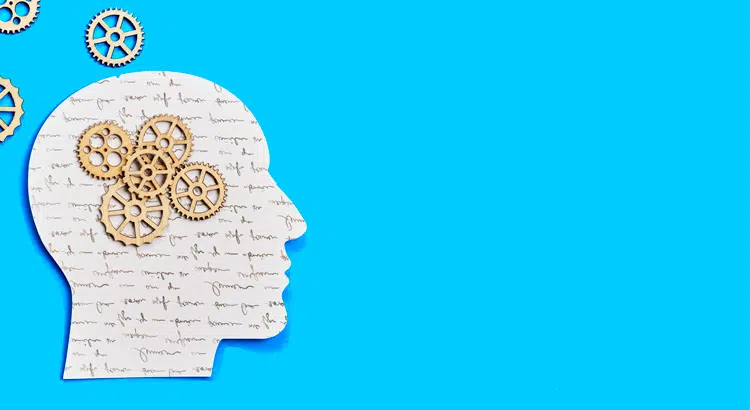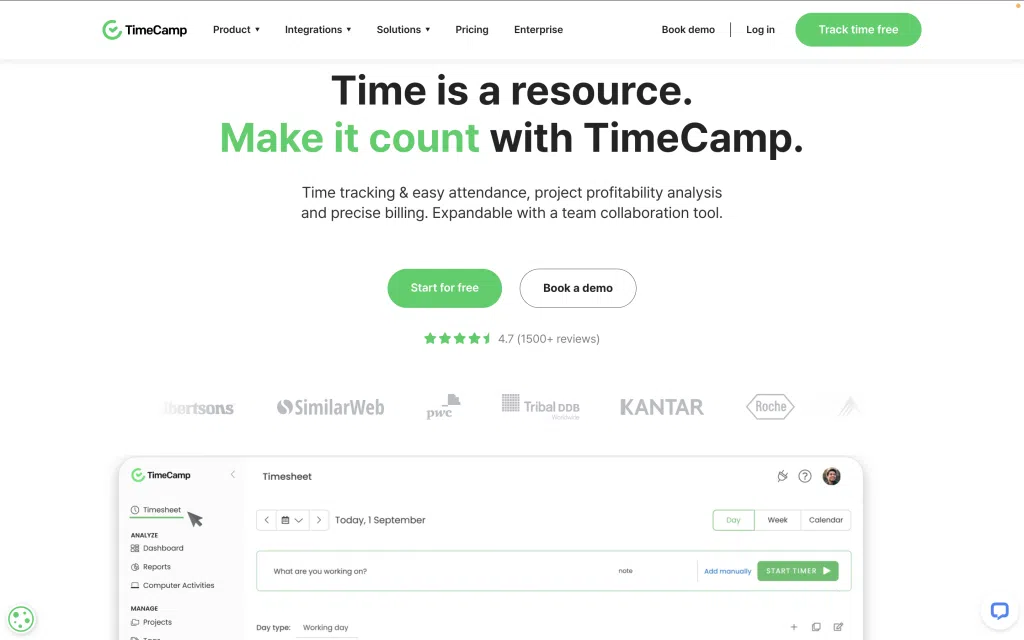ADHD Time Management – Get Things Done
-
Kat Ciesielska
- December 12, 2022
- 7 min read

ADHD – time management is impossible with this kind of brain, isn’t it? Don’t you worry! Adults with ADHD can manage time, too. Successfully. But as a duck shouldn’t get advice on how to swim from a fish, people with ADHD brains shouldn’t listen to non-ADHD friends’ time management tips.
And here’s something for you, dear managers and employers.
Adults with ADHD are not lazy! And they are remarkable workers if you just let them. I could say the same about people with autism, bipolar and others. We’re not the same and it’s beautiful. Hence, we need to manage work differently.
Let’s check how to do this easily.
What is ADHD?
Before we can discuss any time management tops, we need to understand first what ADHD (Attention Deficit Hyperactivity Disorder) is actually. Often treated as just a childhood problem, which is entirely wrong. Many adults have ADHD. In the U.S. it’s about 4.4%
Many of them actually wait until adulthood to get their diagnosis. It affects their self-esteem drastically. They feel odd and broken for years… until some licensed clinical psychologist or psychiatrist enlightens them. According to Additude ADHD Statistics (visit website), It is estimated that fewer than 20% of adults with ADHD are currently diagnosed and/or treated by psychiatrists.

So, again, what is ADHD?
ADHD is a neurodevelopmental disorder that affects the way your brain processes information. It can be a lifelong condition, and it’s characterized by inattention, hyperactivity, and impulsivity. ADHD is frequently co-morbid with other disorders such as anxiety, depression, bipolar or learning disabilities.
If you have ever wondered why you can’t seem to get things done, or why you procrastinate and feel overwhelmed, the answer might be ADHD.
The most common ADHD symptoms
- poor time management (including procrastination),
- inattention,
- perfectionism (especially women),
- weak impulse control,
- exaggerated emotions,
- hyperfocus or complete lack of focus,
- hyperactivity or lack of energy,
- executive dysfunction.
Do I have ADHD?

If completing tasks is hard for you, casual to-do lists are not working, and the symptoms above seem familiar, you can start by taking a simple ADHD test for adults (take it here). It is clearly not an official diagnosis but may put some light. The second step will be going to the specialist, of course, especially since you can have an online ADHD consultation from the comfort of your home (schedule it here).
And, what’s important… remember that having Attention Deficit Hyperactivity Disorder doesn’t mean you lost your life. It’s a brain disorder that causes symptoms in many areas of life—including time management. Not you being a bad adult.
There are many treatments available to help manage ADHD symptoms. Adults with ADHD learn managing time in their own style, and they live happy successful lives.
If you have been diagnosed with ADHD, it means that your brain works a little differently than most people’s brains. But everyone’s brain is different! Some people are naturally more organized than others; some people think faster than others; some people have better memories.
The good news is that every person on earth has unique strengths and weaknesses—and there are ways to take advantage of our individual differences when it comes to time management.
How ADHD affects time management?
While having ADHD, it can be hard to get the most out of your time. It’s not that you don’t want to succeed—you probably have plenty of big goals and dreams in mind. But if you don’t have the tools and strategies needed to manage your time well, it’s difficult to achieve the best results.
There are many ways in which ADHD influences time management:
- planning and organization problems,
- problems with prioritization,
- attention problems (e.g., difficulty focusing on tasks or distractions),
- memory problems (e.g., forgetting things while multitasking; not being able to remember appointments or other obligations until they’re already late).
Most of these difficulties are connected to living in the present moment. That’s how people with ADHD feel. They are much more focused on everything happening now, and they have problems with the future. From a logical perspective, they understand the importance of planning things… but they can’t do it.
If you ask your colleague with ADHD to do something now – there is a huge chance that you will have it done. And done exactly as you wished. Tell them that they have time until next week… well.
The deadline will hit this adult ADHD person right in the face. And the task will not be done at all, done but in the worst possible way, or just half-done. Laziness? Procrastination?
Ladies and gentlemen, I present to you: adults with ADHD.
ADHD Time Management Tips
Start by identifying your strengths and weaknesses. Are you a morning person or someone who likes to work at night? Do you prefer to work alone or in a group? When do you like to take breaks, and what kinds of activities help you recharge your batteries the most? Once you know the answers, it will be easier to create a specific plan that works best for you. Try not to fight with yourself.
Set goals, then create an action plan for achieving them. It’s harder than it sounds! But taking the time upfront will save hours of frustration later on when things aren’t going according to plan.
Prioritize
Before starting any planning, pick your high-priority tasks. And remember, these are not tasks you want to do first. Probably they will be the least pleasant, as life shows. Break big tasks into smaller ones, so they’re more manageable—and rewarding—to accomplish over time rather than all at once under pressure from an impending deadline!
Plan One by One
Plan to do one task after another. Don’t try multitasking; it doesn’t work for most people. For you, it’s just a recipe for disaster. Use your data from past projects, check the actual time you spent on them in past and estimate how much time you need per each of them. Where can you take data from?
Well. Guess 😉
Get to know where your time goes with TimeCamp!
Track time in projects and tasks, create reports, and bill your clients in just one tool.
Implement Time Boxing
The time-boxing method is great for those who are time blindness (that’s you, dear). You simply plan boxes of time for specific tasks, and you focus on them until the time is finished. No more, no less. You can schedule them in a physical planner, but it will be much more effective if you combine them with an alarm. Or use also Google Calendar for example. It’s all about focusing just on the task.
Use Pomodoro Technique
Similar to the time-boxing method. Grab your to-do list and analog or digital timer. Set reminders. 25 minutes of work without any distractions until it rings. Stay focused! Then you go for a 5-minute break (and set the alarm for it, too!). The pomodoro technique really works amazingly.
Find Yourself a Body Double Friend
This is a new term, created for people with ADHD. When a person with ADHD works on some tasks alongside someone else, it’s easier for them. Ask your friend or family member to do the same task as you, or simply stay with you in the same room. It works, even if it sounds crazy at first, so try it out!
Track Your Time
You can track your time both in the smartphone app and on the desktop. Choose what’s best for you, but do it. This is the source of your data. And data are everything! You will learn how much time you really need per task. Without it, planning is hard. Use time management apps for ADHD – dedicated or not.
Plan For Yourself a Buffer Time
Don’t lie to yourself. It’s hard for you to schedule anything. Remember about it while planning and set yourself a buffer time in case all these turns out to be harder than you thought.
Tide things up Quickly
Clean everything and tidy up your workspace right away. After you’re done with the task. Not later because the chances you’ll do it at all are really low. This way you trick yourself. You stay in the present, so it’s easier. A good example: I always clean up during cooking, so when my meal is done, I’m already done with it. Great feeling!
Hide Your Cell Phone
You have the remarkable ability to notice everything around you. Including all these push-ups on the screen of your phone. All these messages, information, and Uber Eats promotions. Hide it. Leave it in another room, silent. Waiting for an important call? Turn on the Internet, put it face to the desk, and leave the vibration on. Then focus on your tasks.
Create a Morning Routine
Yes, you constantly hear this advice. But it does help. Mastering your morning routine will help you in planning everything else. Starting from household chores. It will be your guide for the day. Do it and watch your family members gazing at you in shock when you accomplish morning goals in a timely manner.
Work in The Same Place
If you work remotely, set yourself a small office. It can be even a small desk. Teach your brain to focus once you sit on the chosen chair. It’s time to do things! Let it scream. You can also leave your paper planner there, so it reminds you about planning.
Start now!
This is a big deal, and you want to start, don’t you? Your ADHD brain is excited about the change; it wants to act right now.
Manage Time with TimeCamp

And yes. We can start at this moment. It will help you collect all the data, but not only. Forget about the paper ADHD time management worksheet. Learn everything about your distractions with an automatic app. In a way, you’ve never tried before! Simply download our desktop application, turn it on and analyze the results later.
You will be surprised.
Get to know where your time goes with TimeCamp!
Track time in projects and tasks, create reports, and bill your clients in just one tool.
Conclusion
Having ADHD means that you process time differently. But it doesn’t mean that you can’t schedule anything, and you will always forget about an important meeting. Time management for ADHD people is also possible. Use our tips, find other ADHD adults, and create your own ways. TimeCamp is one of the tools to help you. I believe in you. Time for you to believe too 😉



June 10, 2024 at 18:33
Dear Kat,
I didn’t know there might be a chance of me having it but when my friend got diagnosed and her symptoms sounded like my bad habits I looked into it and turns out it was the reason I’m not operating at my best in uni- which is to say sucking dreadfully and missing deadlines. I was struggling with time management so so much, but then I read your article and it just hit home, damn!!! Thank you so so much!!! I know you’re helping loads of people out there and I just want to appreciate what you’re doing. Thank you.